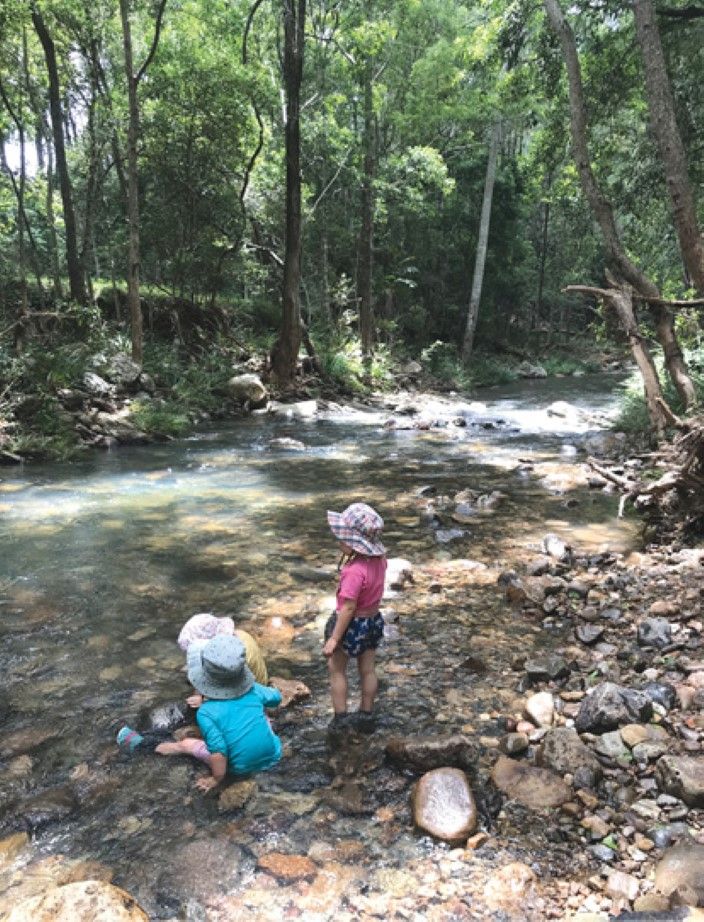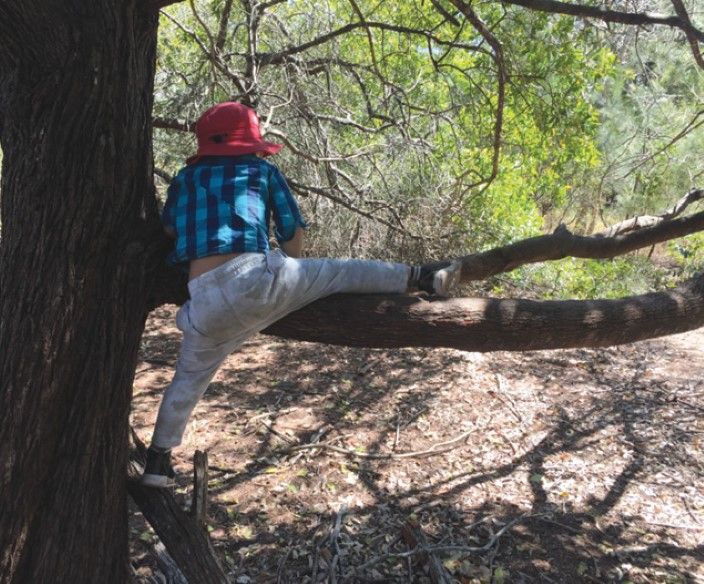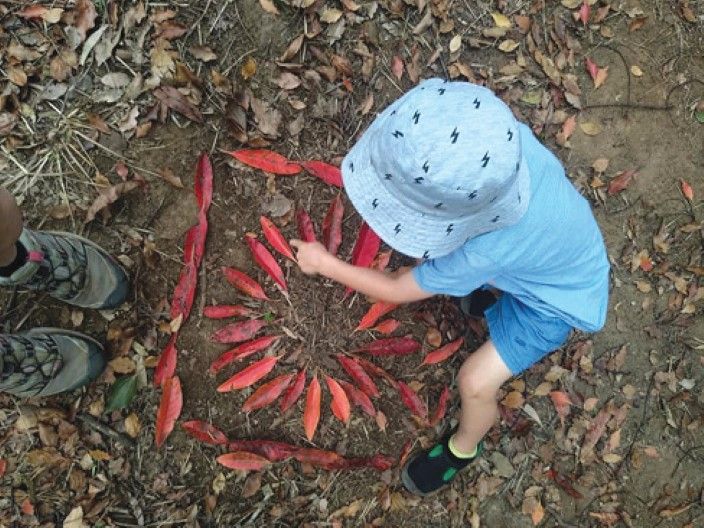“The Mudbook is an entry point not only for other educators to expand their own practice, but also for parents and families as well to understand how nature play builds environmentally led STEM learning.
“The project revealed that there are nine types of nature play with the most common science concept being earth, weather, relations, materials, bodies, time and ecologies.”
Professor Cutter-Mackenzie-Knowles said during the study, children observed animals in nature, including animals that had died. One study group observed a dead kookaburra decompose over six months.
“It was a fascinating thing for these young people, whose practice involved walking in nature every day in the outdoor reserve where they would see the dead kookaburra and linked in their learning into slow decomposition – which is quite remarkable to have that opportunity at such a young age and shows how these nature-play pedagogies operate in practice,” she said.
Country-responsive play
“Several early childhood education settings were Indigenous-focused, applying pedagogies like Country-responsive play, where it wasn’t merely just about giving an Acknowledgement of Country, or paying lip service, but where the Acknowledgement was absolutely embodied in the practice itself.”
Professor Cutter-Mackenzie-Knowles observed children deciding not to remove rocks or plants from their natural setting because they “needed to stay on Country”.
One teacher at a Rockhampton preschool wrote in the Mudbook. ”A lot of our [awareness and appreciation for the natural world] comes through the Acknowledgement of Country we do daily.












































































































































